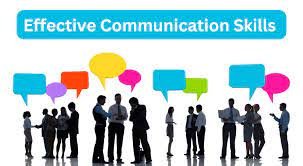Effective communication is a vital skill in both personal and professional relationships. It allows individuals to express their thoughts, ideas, and emotions clearly, leading to better understanding and stronger connections. In this article, we will discuss ten timeless tips for effective communication that can help you enhance your communication skills and build more meaningful connections with others.
Listening attentively is the cornerstone of effective communication. Give your undivided attention to the speaker, maintain eye contact, and show genuine interest. Avoid interrupting and make sure you understand the speaker’s message before responding. Active listening fosters understanding and promotes healthy dialogue.
Communication should be clear, concise, and free from ambiguity. Use simple language and avoid jargon or technical terms that may confuse your audience. Organize your thoughts beforehand to deliver your message with clarity and coherence.
Non-verbal cues play a significant role in communication. Pay attention to your body language, facial expressions, and gestures, as they convey messages and emotions. Maintain an open posture, smile, and make appropriate eye contact to enhance your non-verbal communication skills.
Empathy is the ability to understand and share another person’s feelings. Practice empathy by putting yourself in the other person’s shoes. Show compassion, validate their emotions, and be sensitive to their needs. Genuine empathy promotes trust and strengthens relationships.
Respect is the foundation of effective communication. Treat others with courtesy, even when you disagree with them. Use polite language, avoid personal attacks, and listen to differing opinions without judgment. Cultivating a respectful communication style fosters healthy and productive dialogue.
Practice mindfulness in your communication by being present in the moment. Avoid distractions and focus on the conversation at hand. Mindful communication helps you understand others better and respond thoughtfully, leading to more meaningful interactions.
To ensure effective communication, provide constructive feedback and seek clarification when necessary. If you are unsure about something, ask questions to gain a clearer understanding. Similarly, offer feedback in a respectful and constructive manner to foster growth and improvement.
Effective communication requires flexibility and adaptability. Be open to different communication styles and adjust your approach based on the needs of the situation and the individuals involved. Adapting to different communication styles helps you connect with others more effectively.
Maintain a positive and optimistic tone in your communication. Use words and phrases that inspire, encourage, and motivate others. A positive tone creates a conducive environment for open and productive conversations.
Communication skills can always be improved. Seek opportunities for personal and professional development in communication. Read books, attend workshops, and actively seek feedback from others to enhance your communication skills over time.
Effective communication is a lifelong skill that can greatly impact your personal and professional relationships. By practicing active listening, clear expression, empathy, respect, and mindful communication, you can build stronger connections, resolve conflicts, and foster understanding. Remember to be flexible, offer feedback, maintain a positive tone, and continue learning to enhance your communication skills continuously. By implementing these ten timeless tips, you can become a more effective communicator and enjoy more meaningful interactions in all aspects of your life.


